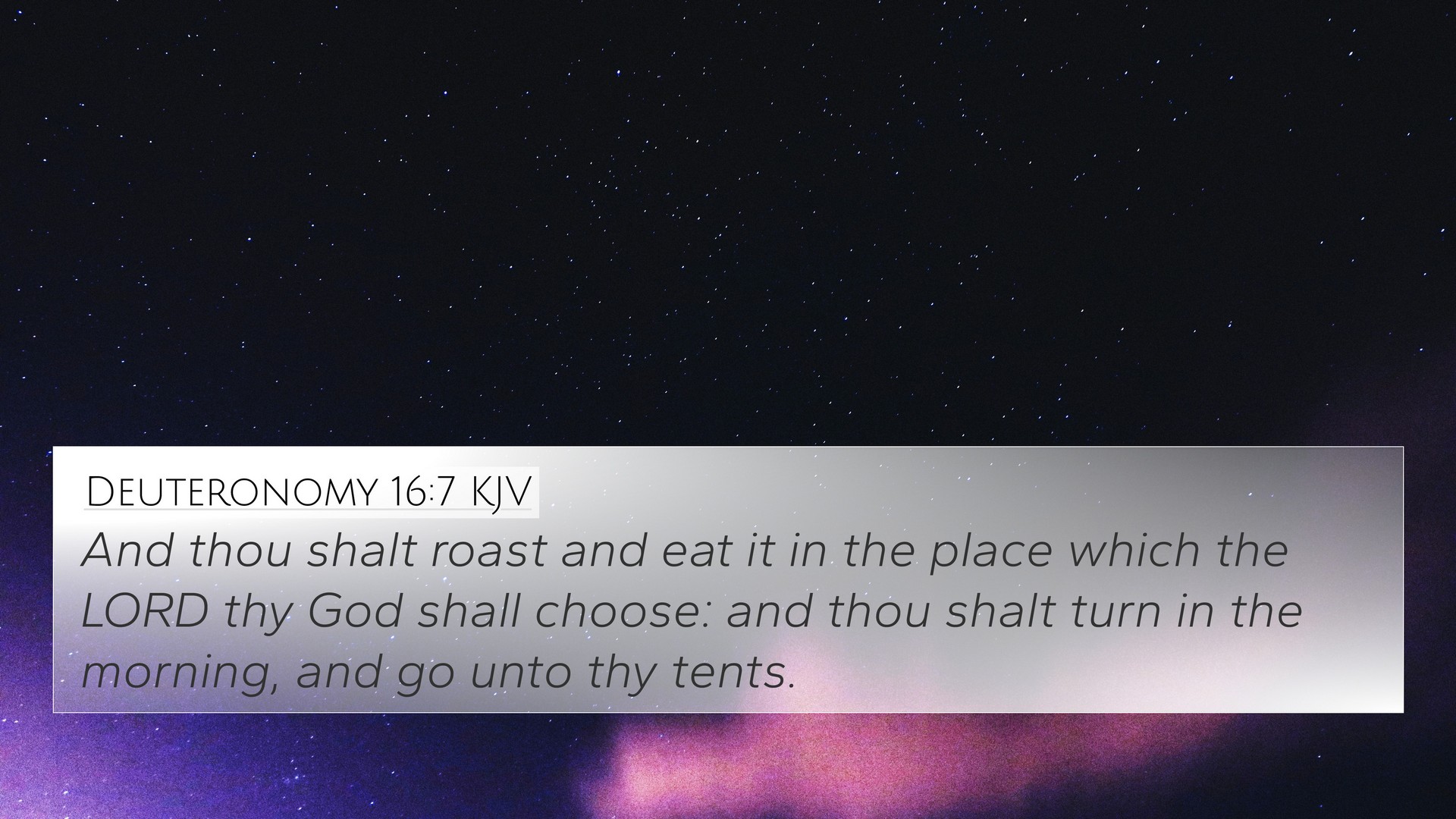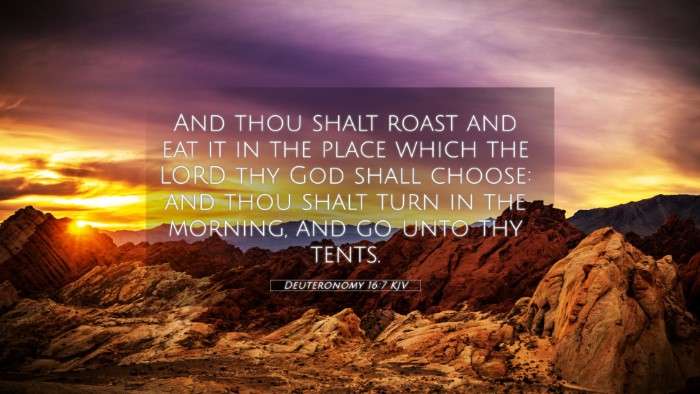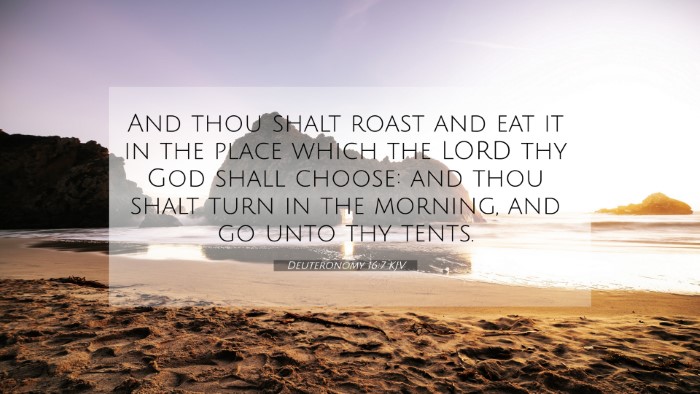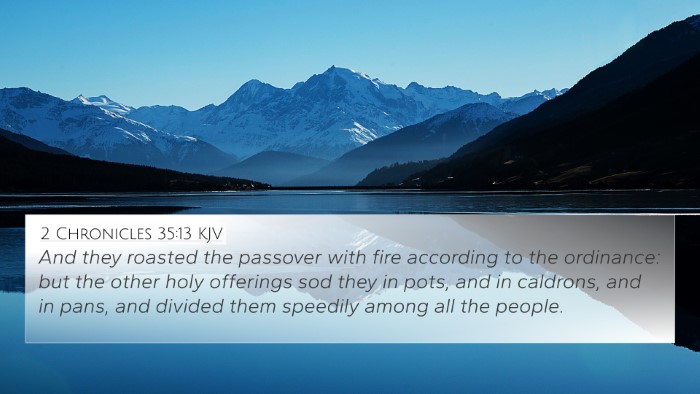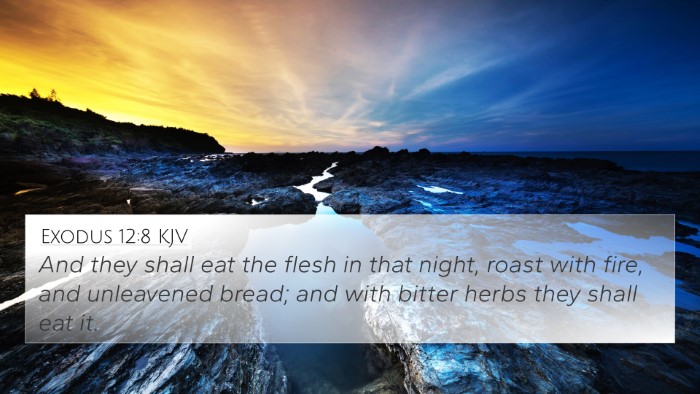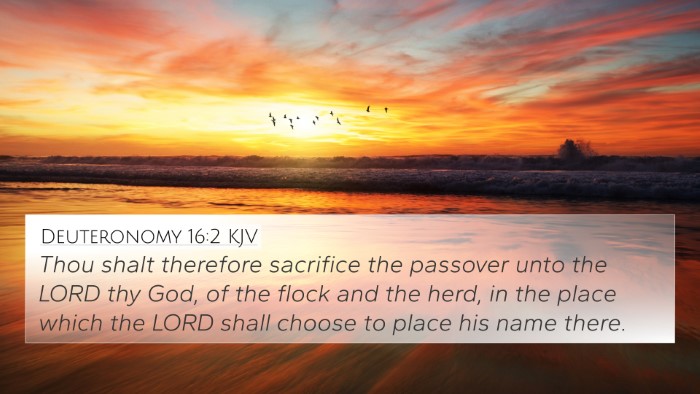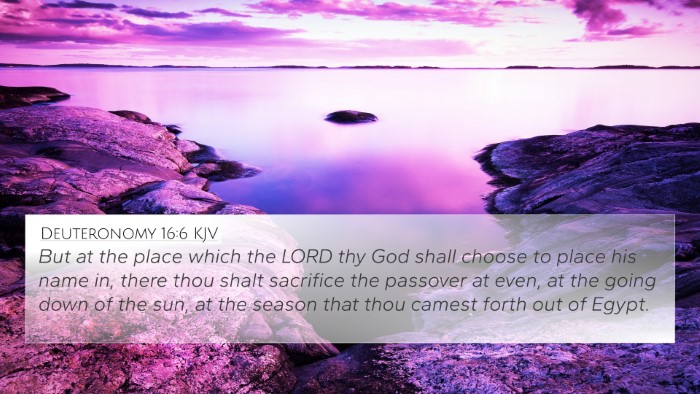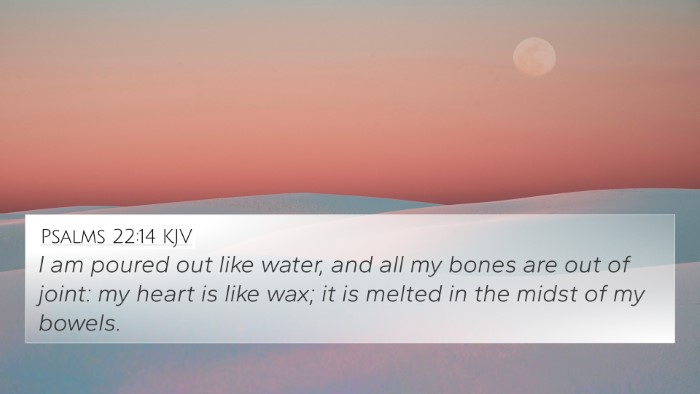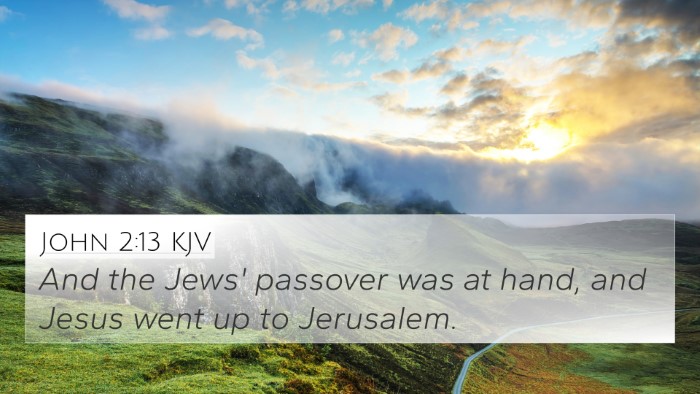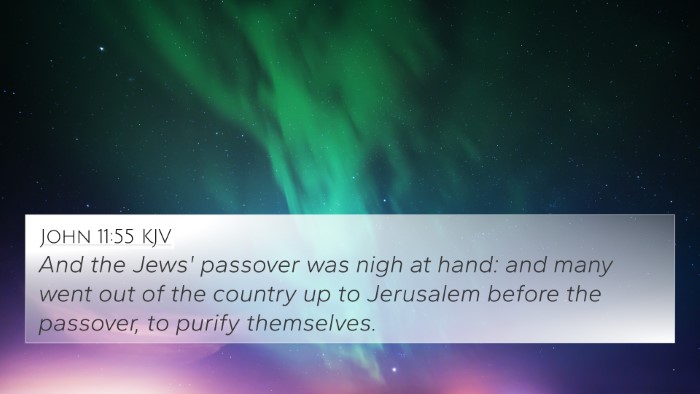Bible Verse Meaning: Deuteronomy 16:7
Deuteronomy 16:7 states, "And thou shalt roast and eat it in the place which the LORD thy God shall choose: and thou shalt turn in the morning, and return unto thy tents." This verse is part of God's instructions regarding the celebration of the Passover, a significant Old Testament festival commemorating Israel's deliverance from Egypt.
Context and Importance
This verse's context revolves around the broader themes of obedience, remembrance, and worship in the Israelite religious system. The directive to roast and eat in a designated place emphasizes God's sovereignty over the worship practices of His people.
Insights from Commentaries
Insights from Matthew Henry
Matthew Henry highlights the importance of the Passover feast and notes that it is not merely a ritual but a celebration of divine intervention and protection. His commentary emphasizes the necessity of performing this observance in a prescribed manner as a form of obedience and reverence to God.
Insights from Albert Barnes
Albert Barnes adds that the specific location chosen by the Lord signifies a centralization of worship, which fosters unity among the Israelites. He points out that the chosen place reflects God's desire for His people to gather for worship and remember His deliverance.
Insights from Adam Clarke
Adam Clarke provides detailed explanations of the rituals involved in Passover, reflecting on the spiritual significance behind the physical act of eating. He mentions that the act of eating together symbolizes community and shared faith among the Israelites, reinforcing their bond as God's chosen people.
Bible Cross-References
- Exodus 12:8 - Describes the original Passover instructions.
- Leviticus 23:5-6 - Relates to the timing and significance of the Passover.
- Deuteronomy 14:23 - Encourages the Israelites to bring their tithe to the feasts.
- Psalm 118:1-2 - A song of gratitude reflecting deliverance and setting a tone of worship.
- Matthew 26:17-19 - The Last Supper, where Jesus celebrates Passover with His disciples.
- Hebrews 11:28 - References the faith exhibited by the Israelites in keeping the Passover.
- Luke 2:41-42 - Demonstrates Jesus’ family observing the Passover, linking Old Testament tradition to New Testament practices.
Thematic Bible Verse Connections
This verse relates to several overarching biblical themes such as:
- Obedience to God: The importance of following divine instructions as seen throughout the Torah.
- Remembrance: Acts of worship are grounded in the remembrance of God's past faithfulness.
- Community Worship: The gathering of God’s people to celebrate shared beliefs and history.
Comparative Analysis
In reflecting on Deuteronomy 16:7, one can conduct a comparative analysis with the following verses:
- 1 Corinthians 5:7-8 - Uses the metaphor of unleavened bread to symbolize purity and newness.
- John 6:4 - References the Passover during Jesus' ministry, linking it to His identity as the Lamb of God.
- Romans 11:16 - Discusses the implications of Old Testament practices on New Covenant believers.
Conclusion
Deuteronomy 16:7 provides vital insights into the nature of worship and remembrance in the life of an Israelite. By exploring the mandates surrounding the Passover, believers can understand the link between God's past acts and present faith. The connection between these biblical instructions and New Testament applications reveals a continuous theological thread that encourages believers to live a life of worship, remembrance, and obedience to God.
